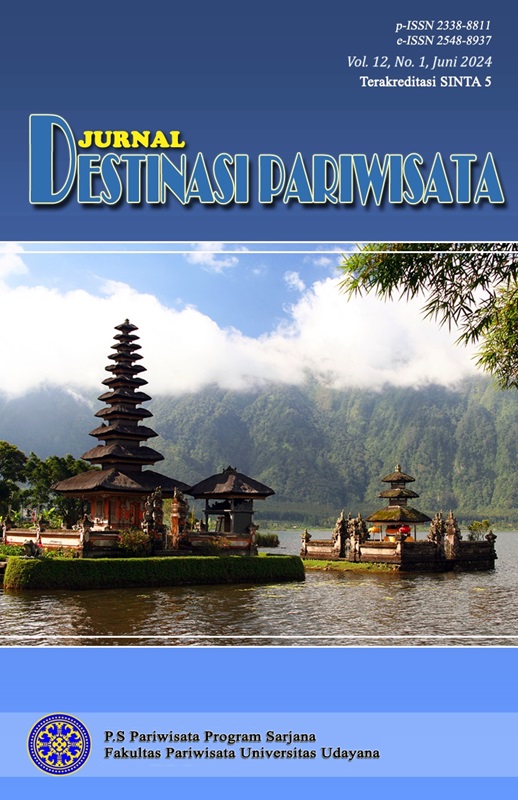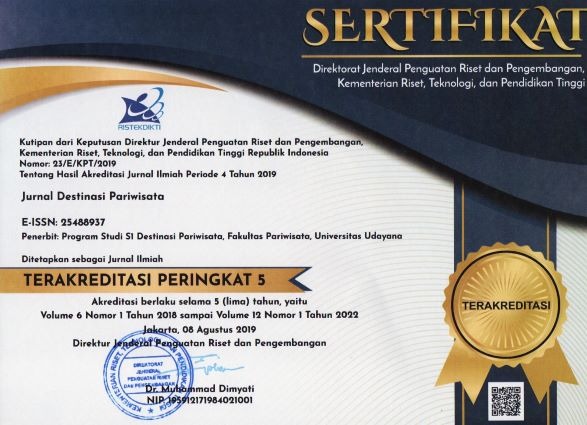Implementasi Konsep Palemahan Dari Tri Hita Karana Pada Potato Head Suites & Studios
Abstract
Tri Hita Karana represents a philosophical and lifestyle framework centered on the harmonization of the self, others, and the environment. Within this paradigm, Palemahan embodies the notion of fostering a symbiotic relationship between humanity and the natural world. This study endeavors to investigate the practical application of Tri Hita Karana, specifically focusing on the Palemahan principle, within the context of hospitality operations in Bali, with Potato Head Suites & Studios serving as the primary case study. The research adopts a qualitative descriptive methodology, integrating interviews with hotel management, direct observations, and a comprehensive review of pertinent literature. Analysis of the data underscores the successful integration of the Palemahan concept within Potato Head Suites & Studios. Notably, the establishment's dedicated sustainable team demonstrates a robust commitment to waste management, emphasizing its paramount importance. Nonetheless, the limited diversity of plant life on the premises presents a notable challenge, potentially hindering the full realization of Palemahan's objectives in fostering a harmonious coexistence with nature and promoting environmental stewardship.
Keywords: Tri Hita Karana, Sustainable Tourism Accommodation, Potato Head Suites & Studios.
Downloads









